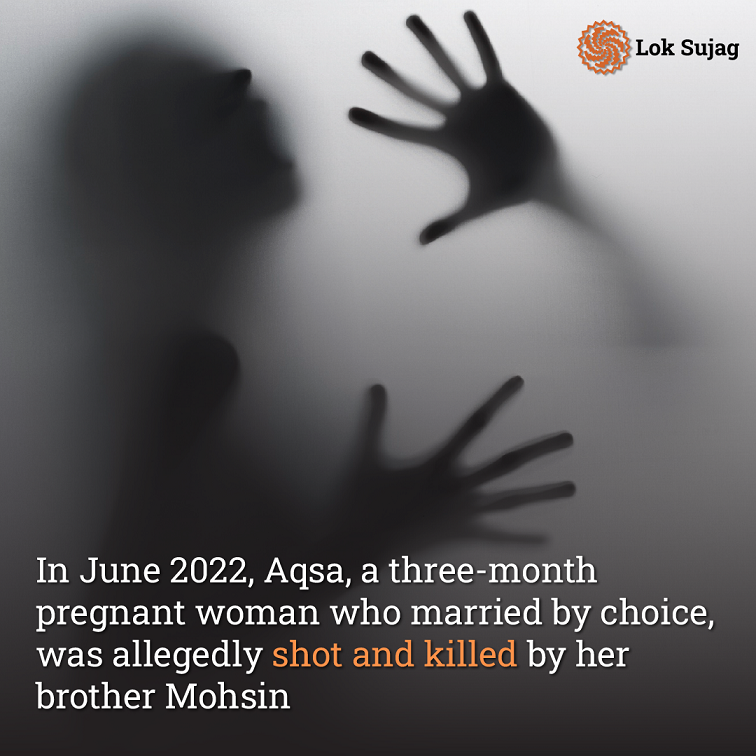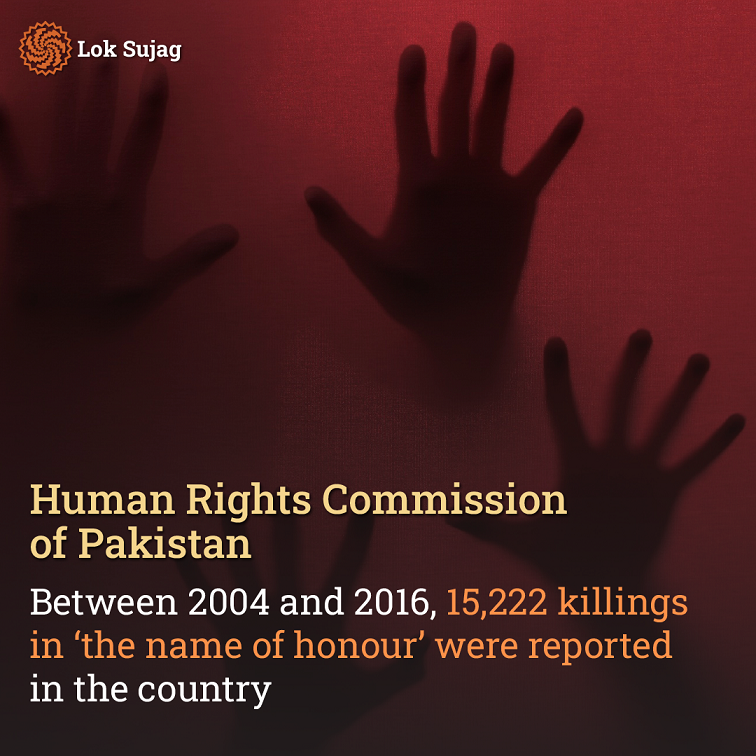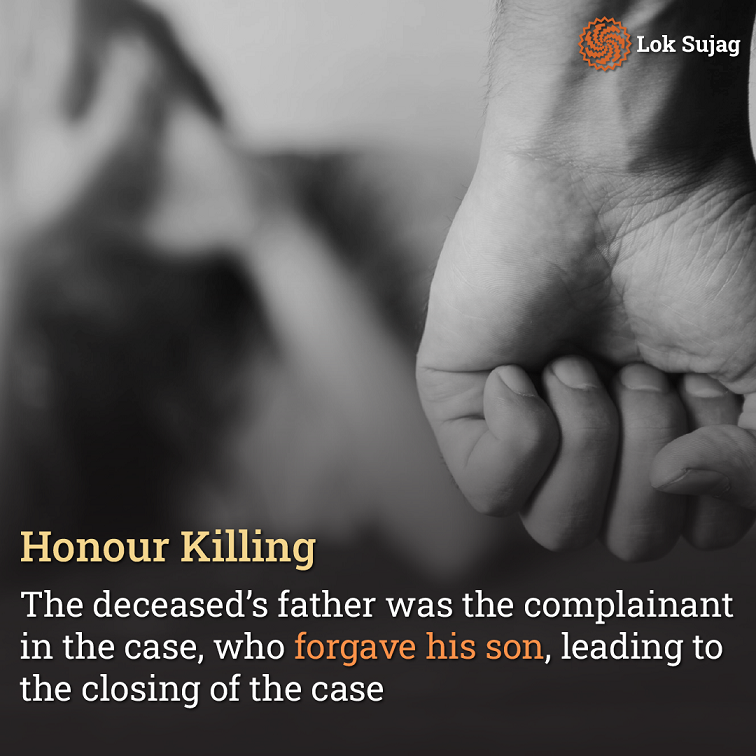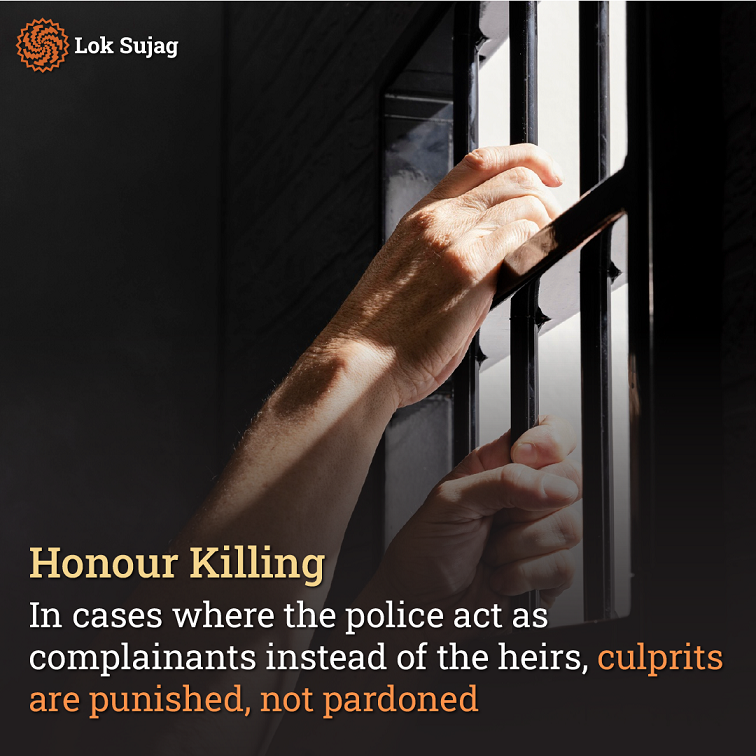The 22-year-old Aqsa from the region of Bet Bosan in Rajanpur and Ali liked each other. They belonged to different clans, and their families had a longstanding feud. However, disregarding this concern, they went to Multan on December 5, 2021, and married at a court there.
The news of their marriage led to an increase in tensions between the two families. Aqsa’s family members were not prepared to accept this marriage. Considering the circumstances, Ali relocated with his spouse away from Rajanpur City.
A few months later, her family called Aqsa back home and told her they had accepted her marriage. Aqsa, three months pregnant then, was overjoyed by the news and headed out to meet her family. Upon her arrival on June 17, 2022, her brother Mohsin allegedly opened fire on her, which proved fatal.

The next day, the police arrested the culprit. However, on September 15, 2022, the suspect was released due to his family’s forgiveness.
Such incidents are common in Rajanpur, and the profound belief that perpetrators will eventually escape punishment or be released fuels the continuation of these tragedies.
Zahoor Ahmed Khosa, the lawyer in Aqsa’s case, explains that the victim’s father acted as the complainant, choosing to pardon his son’s killer. Consequently, the accused was granted amnesty and the case was closed.
He says such incidents are increasing where women are subjected to false accusations and unwarranted suspicion.

A similar incident occurred in the Fazilpur area of Rajanpur, where on October 8, 2021, 27-year-old Raqiya Bibi was reportedly murdered by her uncle Abdul Rahman based on unwarranted suspicion. The culprit was arrested on the third day of the murder. After spending seven months in jail, his relatives, through a compromise settlement, got the perpetrator released from prison.
Such incidents remain prevalent despite laws against killings in ‘the name of honour’ in Pakistan. These killings are referred to as “kala kali” in Punjab, “karo kari” in Sindh, “tor tora” in Khyber Pakhtunkhwa, and “siyah kari” in Balochistan. According to the Human Rights Commission of Pakistan, between 2004 and 2016, 15,222 incidents of ‘honour’ killings were reported across the country.

According to statistics from the District Court Rajanpur, approximately 50 people lost their lives due to ‘honour-related’ issues in the district over the last three years. However, only six individuals were convicted in cases related to these incidents.
Shabbir Mastoi, the SHO of Rajanpur Police Station, explains that the heirs of the criminal usually act as plaintiffs in such cases. Consequently, they pardon the offender and resolve the matter through reconciliation.
“In cases where the police assume the plaintiff’s role instead of the family, the culprit faces punishment rather than pardon,” he says.

Intizar Ahmed, a Senior Advocate from the District Court Rajanpur, states that an amendment to the law in 2016 categorised ‘honour’ killings as acts of rioting. According to this amendment, the victim’s family can pardon the offender under “qissas” but cannot remit life imprisonment under “tazeer”. Following this amendment, the police now register such cases under sections 302 and 311 of the Pakistan Penal Code.
He further explains that before this amendment, while ‘honour’ killing was formally criminalised, the murderer often escaped punishment. Due to “diyat” laws, the heirs could pardon the culprit, leading to their release within a few months. This leniency perpetuated the prevalence of ‘honour’ killings.

Shazia Nawaz, Deputy Director of the Social Welfare Department in Rajanpur, says that merely toughening laws won’t prevent such incidents. As long as societal awareness does not condemn these crimes and cultivate awareness in the younger generation, such incidents will continue.
She reveals that according to Punjab Police, 85 individuals were killed in the ‘name of honour’ between 2011 and 2016 in Rajanpur alone.
Also Read

Rising domestic violence in Balochistan: Impact of floods on women and families
Legal expert and Supreme Court lawyer Farah Khosa says that amendments made to the ‘honour’ killing law in 2016 primarily involve additions to Sections 302, 310, and 345. Previously, heirs could pardon the offender.
Before this law, the maximum penalty for this offence was two to five years of imprisonment. The amended law states that the punishment for ‘honour’ killing shall not be under 25 years. The compensation for the loss of human life has been set at 4.3 million rupees, but this compensation can be paid only if, after assessing the circumstances and events, the judge realises that a settlement agreement is possible. This places compensation for ‘honour’ killings and forgiveness at the judge’s discretion. Without the judge’s consent, paying the “diyat” on one’s own and pardoning the murderer is not considered valid.
Published on 22 Aug 2023



















